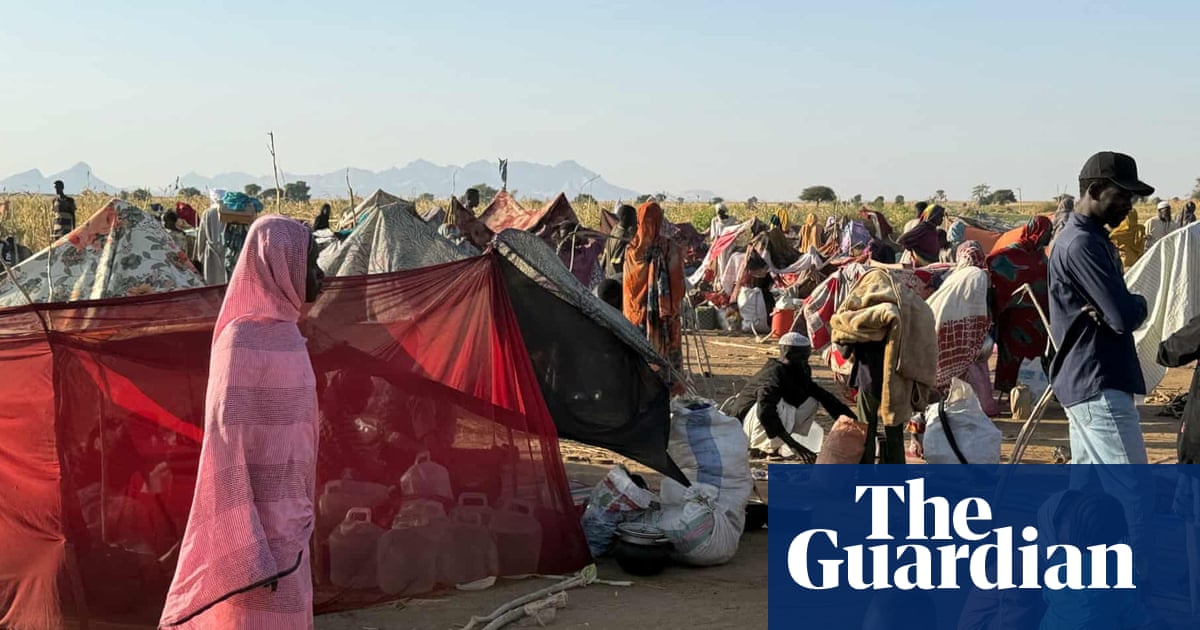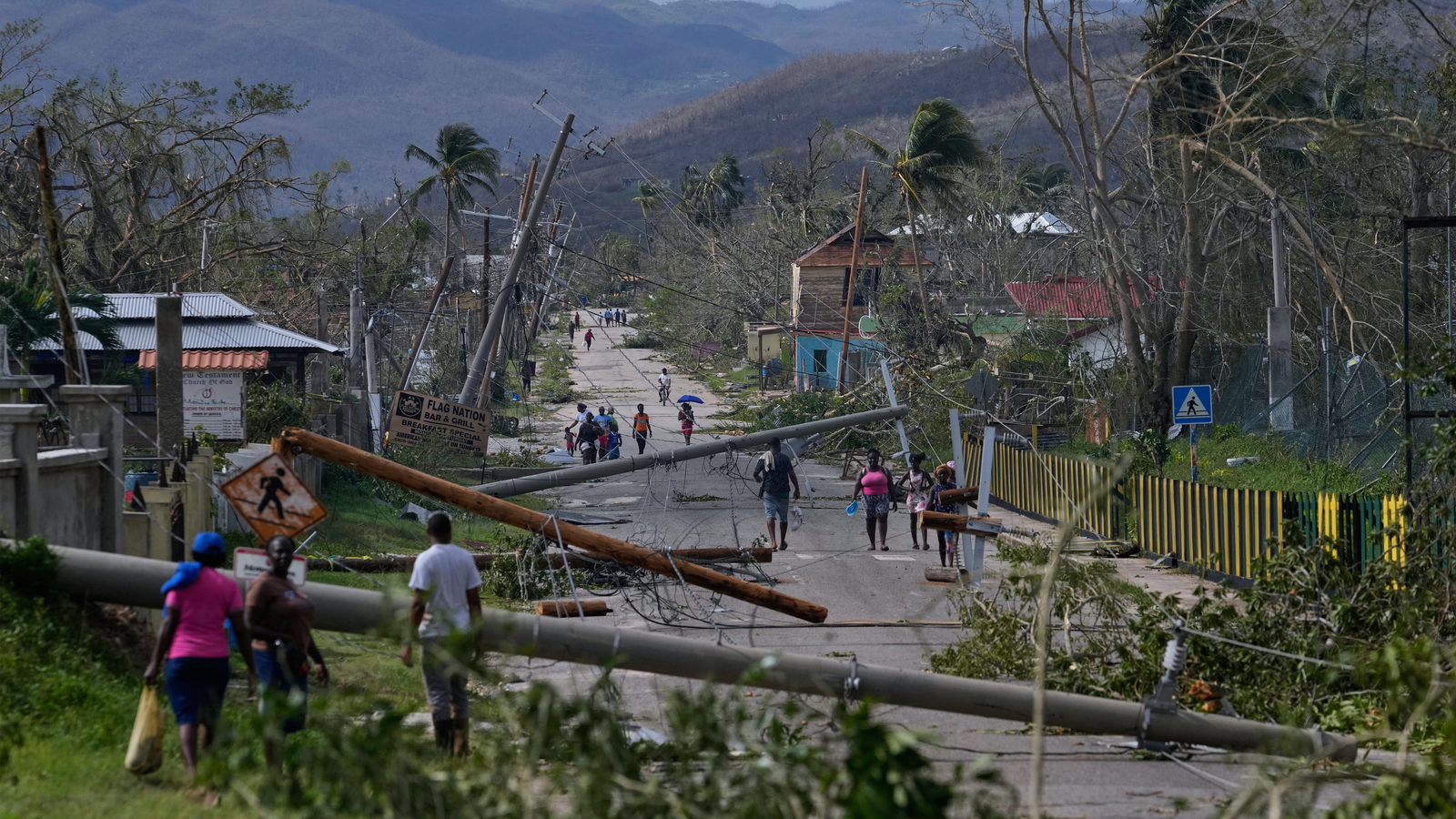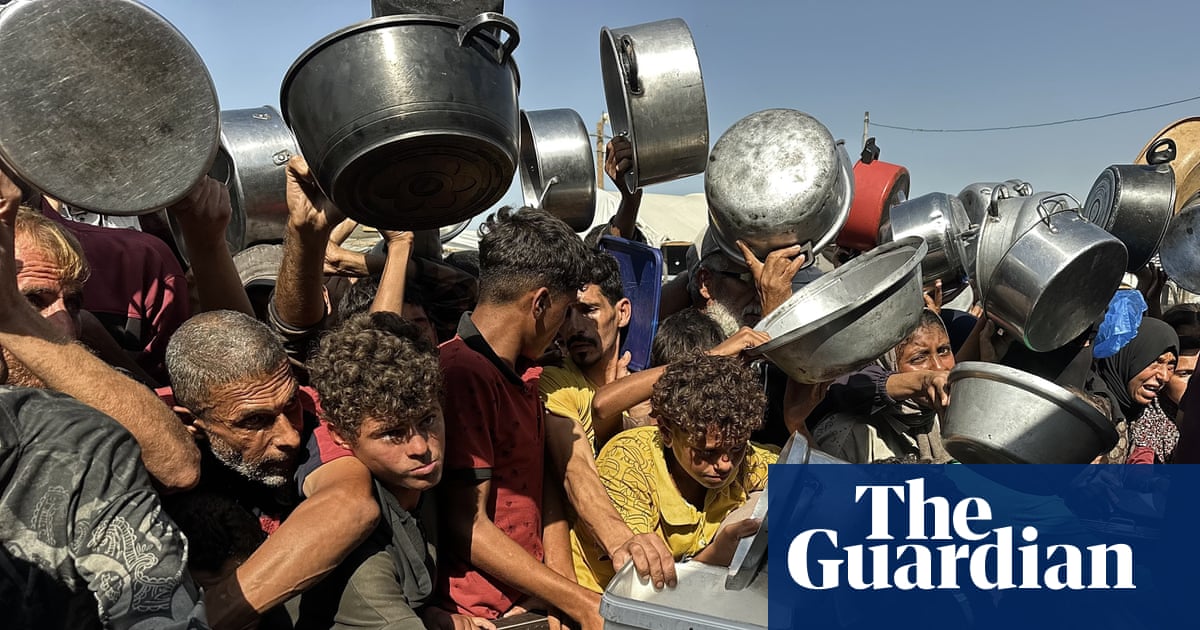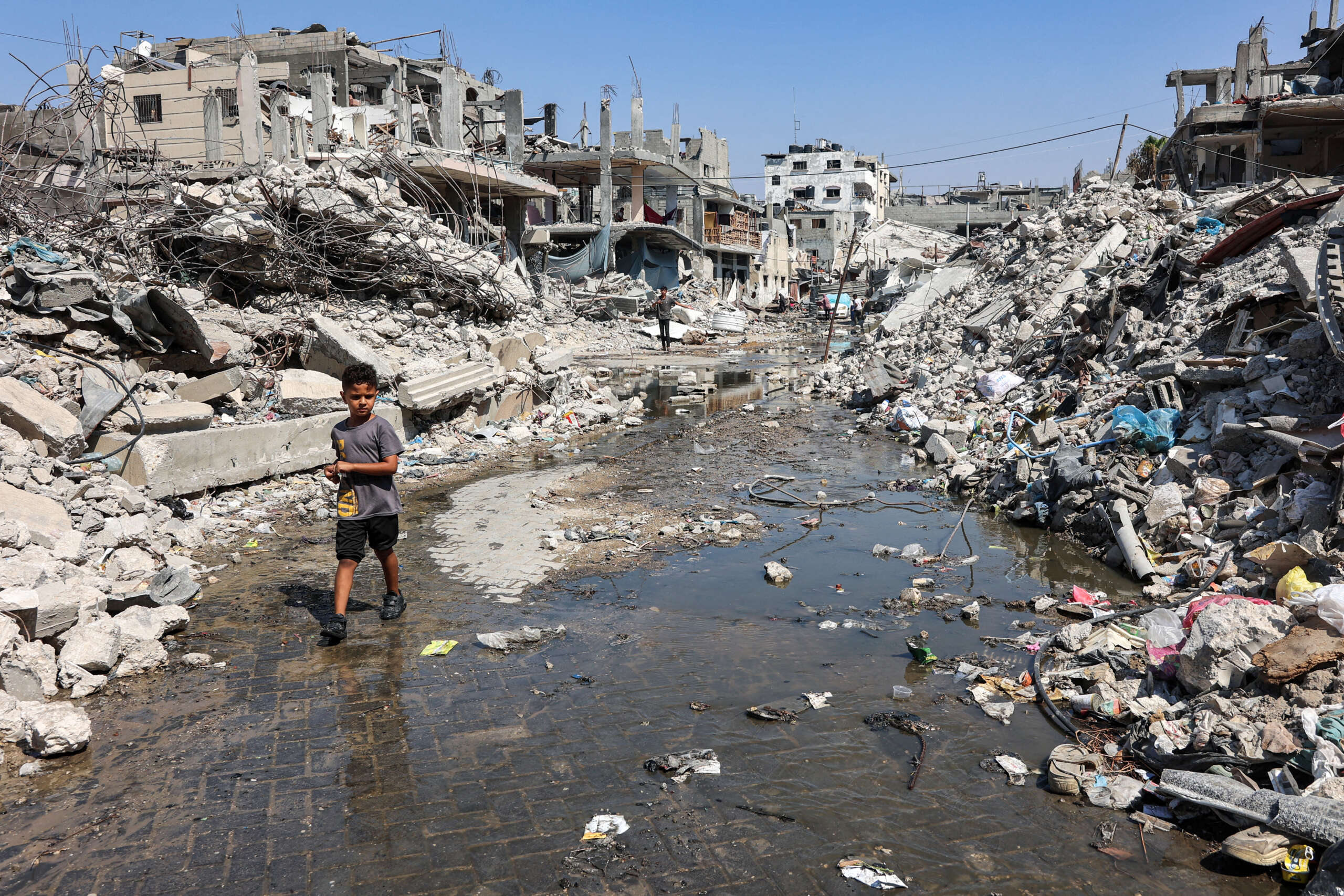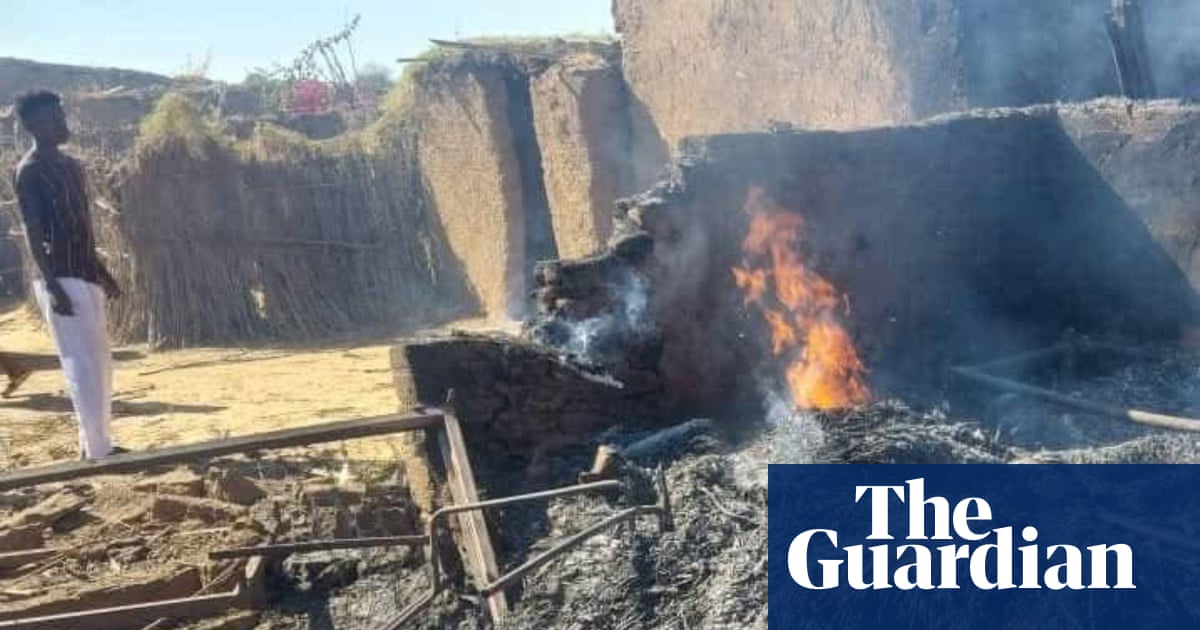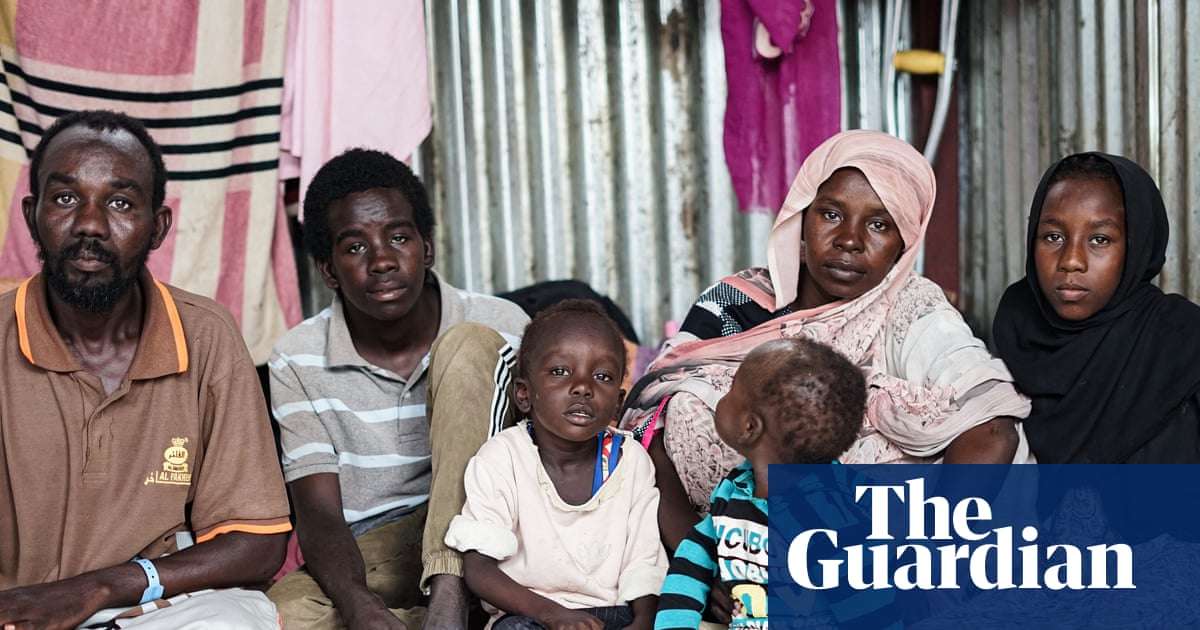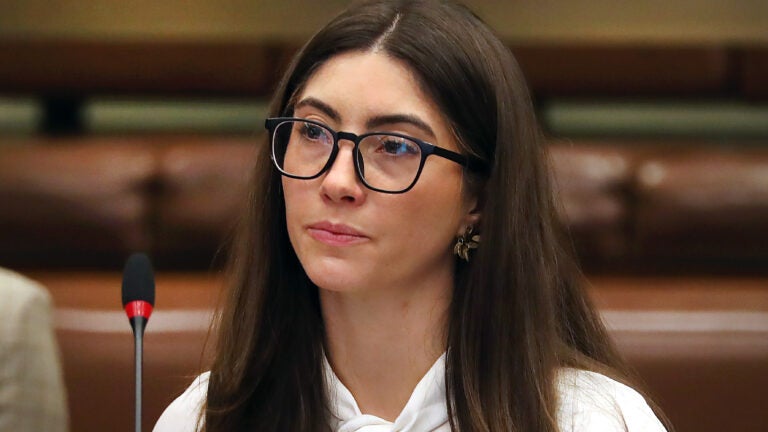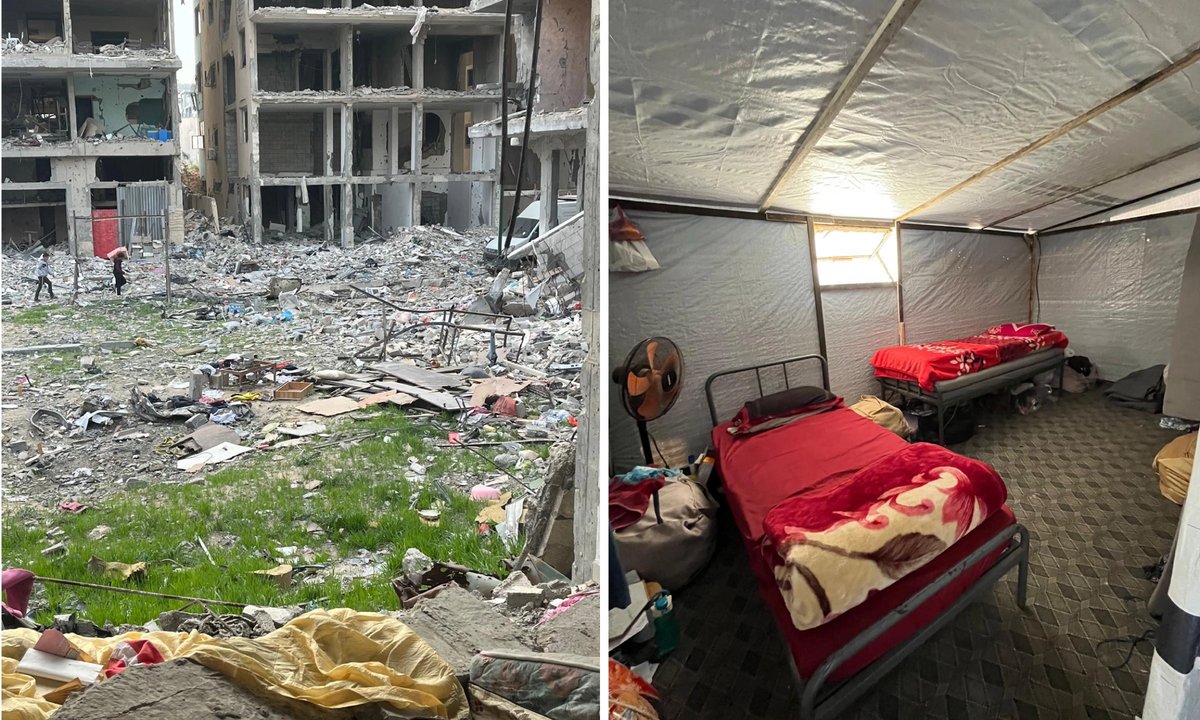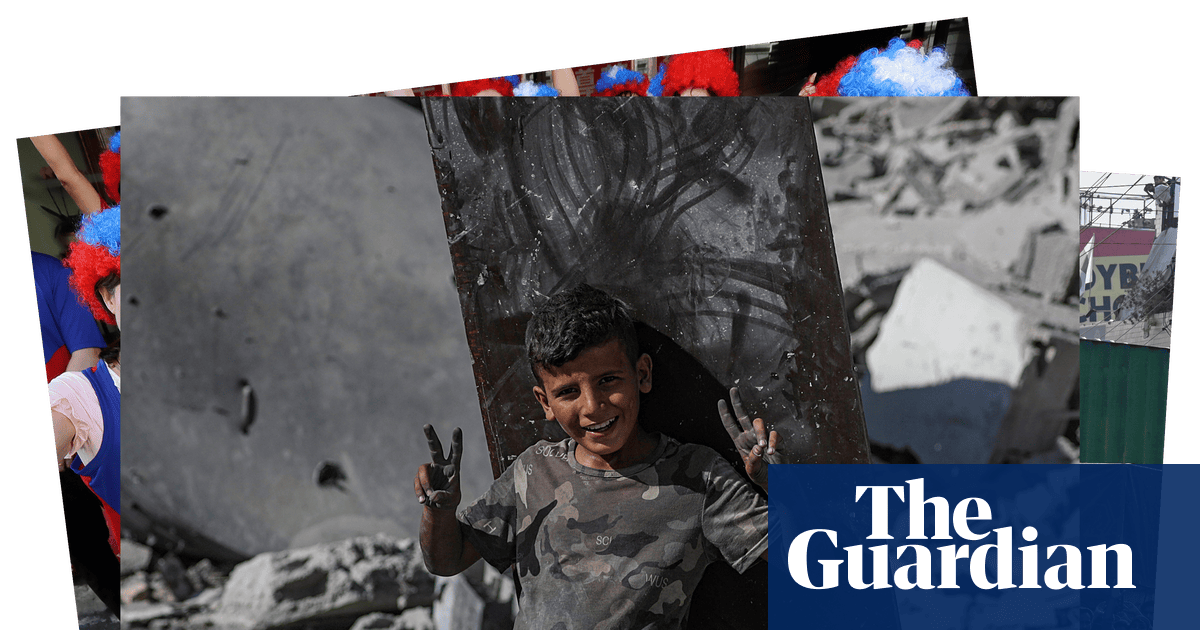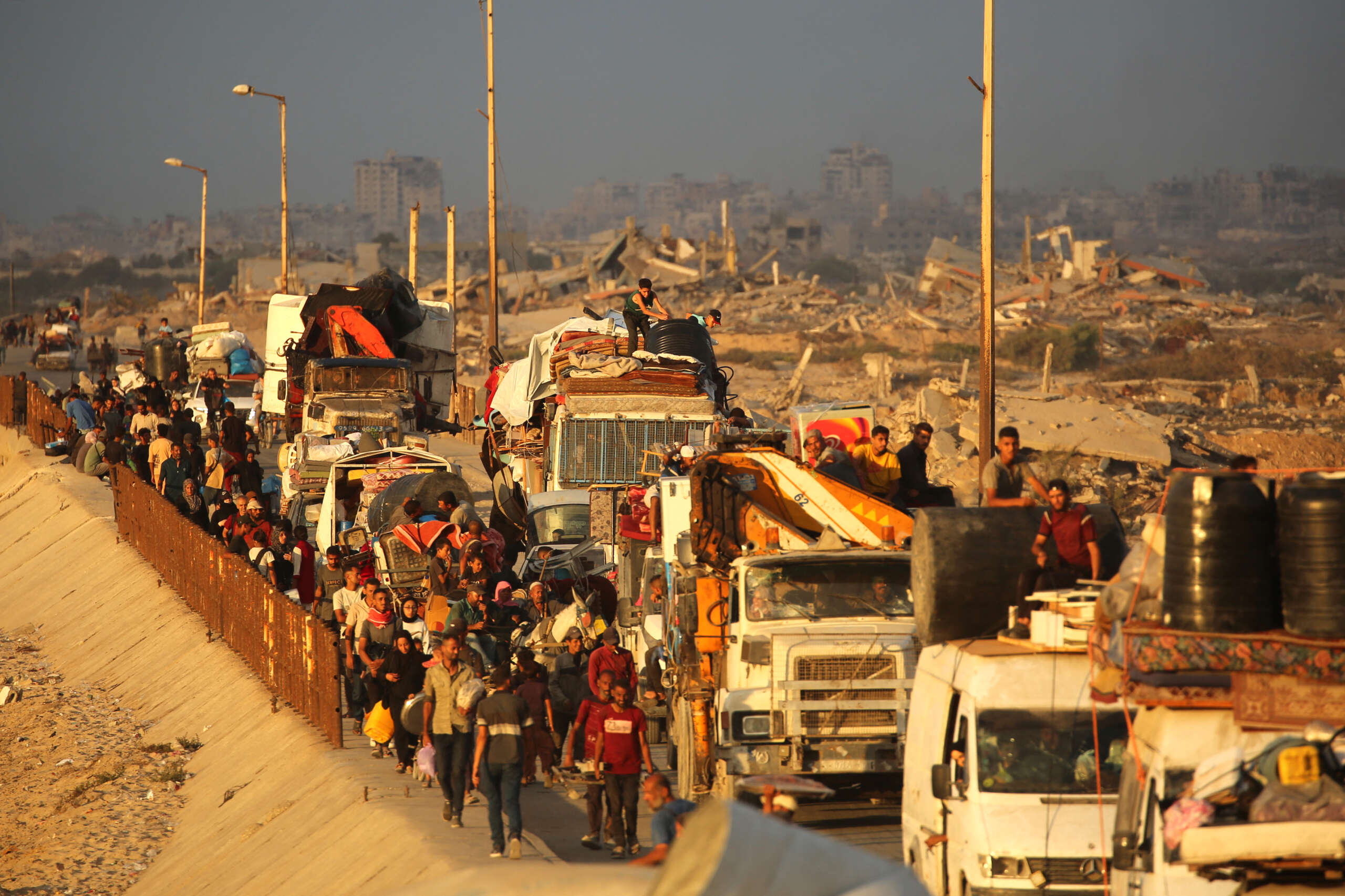#displacement
#displacement
[ follow ]
#gaza #humanitarian-crisis #ceasefire #civilian-casualties #rapid-support-forces #humanitarian-aid #el-fasher
fromwww.theguardian.com
2 days agoA Sudanese massacre foretold: the grim familiarity of the RSF's rampage through El Fasher
Hundreds of patients and staff massacred at a hospital; unarmed men of fighting age separated and shot at close range; civilians trying to flee stripped of their belongings and extorted for ransom; perpetrators filming much of the violence themselves. The reports of atrocities that have emerged from the Sudanese city of El Fasher since it fell to the paramilitary Rapid Support Forces last weekend follow a familiar pattern.
World news
fromwww.aljazeera.com
3 days agoNo mercy': Sudan soldier tells of escape from RSF slaughter in el-Fasher
Abubakr Ahmed was ready to die on the soil he had fought so hard to defend from Sudan's paramilitary Rapid Support Forces (RSF). For 550 days, he fought as a member of the popular resistance, a neighbourhood group formed to help the army and aligned armed groups protect el-Fasher from the RSF, their rival in the two-and-a-half-year civil war. The besieged city was the last army stronghold in the sprawling region of Darfur, until it fell on October 26.
World news
fromwww.theguardian.com
1 week agoThere is no life': Kupiansk's slow demise reflects the fate of cities on Ukraine's frontline
I was in a five-storey building, she explained , speaking from a centre for the displaced in nearby Kharkiv. I don't know whether it was a Russian missile or bomb that hit the building but it started a fire, and when the flames reached my floor, I was stuck because the door was damaged and I couldn't escape. The Ukrainian military, she said, saved her life.
Miscellaneous
fromPsychology Today
1 week agoThe Body May Escape, but the Mind Often Can't
Now working with MSF in Ireland, Mughessib recently reflected on what it means to leave everything behind: You have nothing but your clothes, a mobile phone, a charger, and some money. You're not allowed to take souvenirs of Palestine. Not even sand. When you cross the border, you realise you've lost everything ... My soul is there. My memories are there. My cat is there.
Mental health
fromwww.aljazeera.com
1 week agoShifting Roots: A Lebanese Woman's Fight to Save Her Olive Trees
During fighting between Israel and Hezbollah, Nouhad was forced to flee her home in southern Lebanon. While others speak of loss and destruction, the 81-year-old speaks of her beloved olive grove her life's work and a symbol of resilience amid the chaos. But when the Israeli military rains down white phosphorus, burning her beloved trees, she must confront the unbearable truth of losing not just her land, but a part of herself.
Film
World news
fromwww.theguardian.com
2 weeks agoSahel-based jihadists are extending their reach. Can a fractured region push back?
Malian women refugees live in camps, grieving husbands presumed dead or captured, rebuilding lives amid escalating jihadist violence across the Sahel and coastal West Africa.
California
fromLos Angeles Times
2 weeks agoNine months after fires, residents continue to struggle with housing stability, finances
Large numbers of Altadena and Pacific Palisades residents remain displaced, face housing insecurity, insurance battles, and financial strain causing food and medical care cutbacks.
fromsfist.com
3 weeks agoSpike Lee Receives Mill Valley Film Fest Award, Suddenly Recalls He Made Sucker Free City'
Esteemed filmmaker Spike Lee received a Tribute Award at the Mill Valley Film Festival this weekend. While on stage with Oakland-based actor Delroy Lindo, who starred in four of Lee's films, Lee suddenly remembered he directed the 2004 film As the Chronicle reports, Lee was on stage with Lindo, who most recently starred in the Ryan Coogler film , when it dawned on Lee that he'd shot a film entirely in San Francisco. Struggling to remember the film's name, Lee asked the audience to pull up IMDB.
Film
fromPsychology Today
3 weeks ago"Actually Romantic": When Displacement Looks Like a Diss Track
In her new album, The Life of a Showgirl, Taylor Swift invites us into the psychological backstage of fame. One of the album's more provocative tracks, "Actually Romantic," has been widely interpreted as a diss track. While fans and critics alike often have a hard time reaching agreement on who Swift references in her bops, many believe "Actually Romantic" targets fellow pop icon Charli XCX. The track highlights Charli's reported drug use and likens Charli's critical attention to Taylor to infatuation.
Music
fromThe Art Newspaper - International art news and events
3 weeks agoAichi Triennale confronts war, memory and environmental collapse
At the sixth edition of the Aichi Triennale, which opened in Japan in September, wars and their effects loom large. The exhibition's title, A Time Between Ashes and Roses (until 30 November), comes from a line in a poem by the Syrian poet Adonis about the cycle of destruction and rebirth, observed through nature. It resonates throughout this year's event, where war, displacement, memory and the natural world are interwoven across venues in Aichi Prefecture, located to the west of Tokyo.
Arts
fromwww.dw.com
4 weeks agoWhat has Israel achieved in 2 years of war in Gaza? DW 10/05/2025
October 7, 2023, caught Israel off guard. That day, Hamas fighters and other terrorist militias overcame Gaza's fortified border and launched an attack in Israel, killing nearly 1,200 people and taking 251 hostages back to the small Palestinian territory. The experience of such vulnerability led to a trauma still being felt in Israel today. On October 8, 2023, Israel's government launched an attack on Gaza, and the two years since have been horrific for Palestinians in the enclave.
World news
World news
fromwww.theguardian.com
4 weeks agoThe fear was immense': al-Shabaab exploits fragmented politics to reclaim land in Somalia
Al-Shabaab's offensive reclaimed large Somali territories, threatened Mogadishu, and left the government dependent on foreign military backing, producing a strategic stalemate.
fromwww.npr.org
1 month ago'The Loneliness of Sonia and Sunny' is a terrific, tangled love story
This is a novel of ideas, as well as, at its most elemental, a tangled love story. Desai's characters inhabit a complex post-modern, post-colonial world and, yet, her own sensibility as a novelist is playfully old-fashioned. Consider the contrivance Desai brazenly concocts to enable a central moment of this story: a chance meeting on an overnight train between the two title characters after they've each rejected their own families' formal attempts to arrange a marriage between them. Dickens, himself, might have blushed.
Books
Arts
fromColossal
1 month agoWorld War II Journal Entries Float in a Web of Blood-Red Yarn in Chiharu Shiota's 'Diary'
Large-scale installations of red thread and found diaries explore memory, mortality, connection, identity, displacement, and belonging through immersive, bodily, and archival material.
fromwww.theguardian.com
1 month agoCrowded camps, stagnant water and not enough doctors: first the floods, now disease stalks millions in Pakistan
I rushed outside and then, when the water reached six feet, climbed on to the roof with my children, Nawaz says. That night and the following morning, we had nothing to eat. While on the rooftop, my little boy kept asking when we could go home downstairs, but our home was already submerged. The water had nearly reached the roof when rescue teams finally arrived the next afternoon to take us to the camps by boat, and it reached a maximum of 22 feet, says Nawaz.
World news
Public health
fromwww.theguardian.com
1 month agoWill my baby be born in a tent? Will it have food?': what it's like to be pregnant in Gaza
A pregnant woman in Gaza faces severe malnutrition, a high-risk pregnancy, displacement, and lack of healthcare and food, fearing death or loss of her baby amid ongoing conflict.
Public health
fromwww.aljazeera.com
1 month agoPakistan floods spark cholera fears amid other rising health risks
Cholera risk is rising in Pakistan because catastrophic floods, displacement, and contaminated water strain sanitation and healthcare, demanding immediate clean water and hygiene interventions.
[ Load more ]


